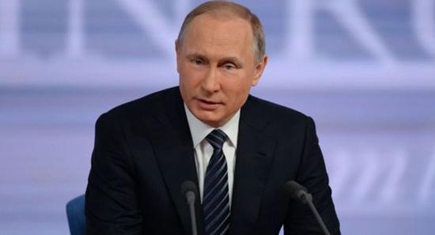By David Libang Huang, globe-trotting freelance journalist

Russian President Vladimir Putin paid a state visit to China on June 25. Chinese President Xi Jinping met with his Russian counterpart Putin on Saturday afternoon in Beijing. During their talks, the two heads of state vowed to unswervingly deepen their strategic partnership of coordination. They also witnessed the signing of the deals, covering such areas as economy and trade, finance, infrastructure, technology and innovation, energy, Internet and people-to-people exchanges.
Unlike China’s relationship with the United States and European Union, economic relations between Beijing and Moscow are colder than their political ties.
Official statistics from China’s General Administration of Customs (GAC) reveal that bilateral trade volume between China and U.S. has already exceeded 550 billion U.S. dollars, whereas China and Russia remains trade hover below 90 billion U.S. dollars, although the two sides have pledged to reach the 200 billion U.S. dollar target by 2020.
Russia has the largest territorial landmass in the world, offers abundant unexploited natural resources due to its huge size yet scarce population. Russia is a self-sufficient country.
However due to Western Europe’s heavy reliance on foreign oil and natural gas, there have been plenty of trade-oriented communications between Russia and the EU. But by virtue of the long-term Cold War between Moscow and Washington, trade volume between these two world powers has been limited.
What about the role that China plays?
On account of Western sanctions imposed on Russia over the Ukraine crisis, the sharp decline of oil prices and depreciation of the Russian currency Ruble, Russia has begun to shift away from the West and towards the East. China is Russia’s biggest trading partner in the Eastern Hemisphere.
Since the collapse of the Soviet Union in 1991, many young and middle-aged Chinese tourists had chosen South Korea, Japan, Southeast Asia, Western Europe or North America as their favorite foreign tourist destinations. Russia was not on their list, but a great change has taken place. More Chinese tourists are flocking to Russia, especially in the summer, which is making positive contributions to Russia’s stagnant economy.
Some Chinese business enterprises have also started to expand across to the neighboring Russian market. E-commerce giant JD.com launched its Russian language website in 2015 and Jack Ma, founder of Alibaba Group Holding Limited, is expected to enter the Russian market as well.
Economic cooperation between Beijing and Moscow can be found in various fields, ranging from wheat exports to high-speed railway construction. China, as founder of the Belt and Road Initiative and largest shareholder of the Asian Infrastructure Investment Bank (AIIB), has already signed numerous business contracts with Russia.
With regards to people-to-people exchanges, Chinese President Xi Jinping delivered a keynote speech at Russia’s Moscow State Institute of International Relations, also known as MGIMO University, on March 23, 2013, just a few days after he assumed office.
Right after the July 2015 BRICS and Shanghai Cooperation Organization (SCO) summits were held in Ufa, Russia, the Global Times published an article entitled, “After Western sanctions hit Moscow, China and its neighbor develop closer economic cooperation and cultural exchanges.”
There are approximately 25,000 Chinese students studying in Russia while there are only about 15,000 Russian students studying in China. Due to the impressive overall quality of Russia’s domestic higher education and rapid rise of China in today’s world, both figures are expected to increase.
China and Russia have so many areas in common. They are two of five permanent members of the United Nations Security Council, two of three largest shareholders of the AIIB, two of five members of BRICS (Brazil, Russia, India, China and South Africa), members of APEC (Asia-Pacific Economic Cooperation), members of G20, and members of the SCO.
Chinese Foreign Minister Wang Yi said at this year’s Chinese Foreign Policy Press Conference on March 8 that the relationship between China and Russia is “mature” and “stable.”
Those two words indicate that Beijing and Moscow are comprehensive strategic partners. Wang’s statement was “pragmatic,” based on what London-based former Kremlin Advisor Alexander Nekrassov told U.S.-based WBRS 100.1 FM in March this year.
( The opinions expressed here do not necessarily reflect the opinions of Panview or CCTV.com. )

Panview offers an alternative angle on China and the rest of the world through the analyses and opinions of experts. We also welcome outside submissions, so feel free to send in your own editorials to "globalopinion@vip.cntv.cn" for consideration.















